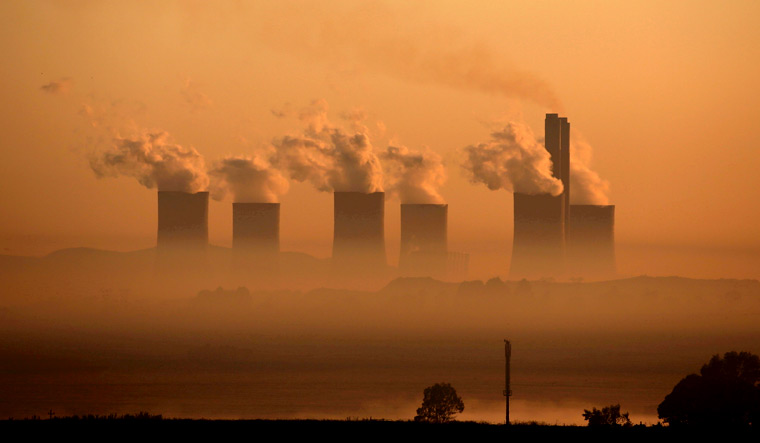Researchers from eight countries led by the Indian Institute of Technology-Madras have conducted a study on how gaseous emissions from power plants lead to changes in cloud formation to ascertain the impact of coal-fired power plants on the climate.
The study, conducted during the COVID-19 lockdown in India, imparts insights into the consequences of reduced human-related emissions on aerosol traits and cloud formation, thereby advancing the comprehension of the implications of coal-fired power plant emissions in the context of climate change, officials said.
The findings of the study have been published in the reputed journal "Climate And Atmospheric Science". The team included 27 researchers from India, China, the USA, Germany, the UK, Mexico, Italy, Saudi Arabia and Finland.
The researchers delved into the impact of emissions from the Neyveli coal-fired power plant, located about 200 km south of Chennai, on aerosol growth and cloud-forming properties during the Covid lockdown.
The team studied how atmospheric conversion of gaseous emissions from power plants into particulate matter results in particles that are rich in sulphate and consequently have high cloud-forming potential compared to natural counterparts.
This study may provide important scientific insights for framing policies related to controlling PM 2.5.
"Our study provides a rare opportunity to examine the sensitivity of cloud-forming aerosol particles to new particle formation and growth due to SO2 emissions from a coal-fired power plant under relatively cleaner conditions.
"These findings have important implications for assessing the climate impacts of anthropogenic aerosols and highlight the need for comprehensive emission control measures," said Sachin S Gunthe, the coordinator of the Centre for Atmospheric Sciences at IIT-Madras.
Gunthe explained that observations and analyses presented in the research paper offer a rare chance to explore how aerosols with the ability to form clouds react to new particle formation and growth resulting from SO2 emissions from a coal-fired power plant.
"This occurs under relatively cleaner conditions in tropical India. These findings are of immense importance to climate modellers as they establish a baseline for comparison against the typically prevalent conditions in heavily polluted coastal Indian cities," he said.
A doctoral student at the Centre for Atmospheric and Climate Sciences, IIT Madras, Aishwarya Singh calibrated, maintained and operated the set of six advanced and state-of-the-art instruments during the COVID-19 lockdown under extraordinarily challenging and adverse conditions.
"We had started running our aerosol characterization equipment for routine measurements just a few days before the lockdown was announced and I was presented with an option of shutting down all the instruments and going home by my doctoral advisor.
"Upon discussing the possibility of continuing the measurements during the lockdown with him, I decided to stay back to carry out the observations, anticipating some interesting scientific findings," Singh said.
During the lockdown, as anthropogenic emissions such as traffic and industries significantly decreased, the researchers observed a drastic reduction in the overall aerosol burden over the study region.
"This provided a unique opportunity to isolate the impact of specific emission sources, mainly from the power plant, which continued operation during the lockdown, to understand the underlying processes of aerosol formation and its impact on cloud formation and climate," he said.
The researcher explained that implementing aggressive measures to reduce particulate pollution originating from traffic and various industrial sources within coastal regions such as Chennai might lead to outcomes that work against the intended goals.
As a result, there is a pressing need for comprehensive reconsideration and the exploration of alternative strategies to address air pollution at the regional level effectively, Singh said.



